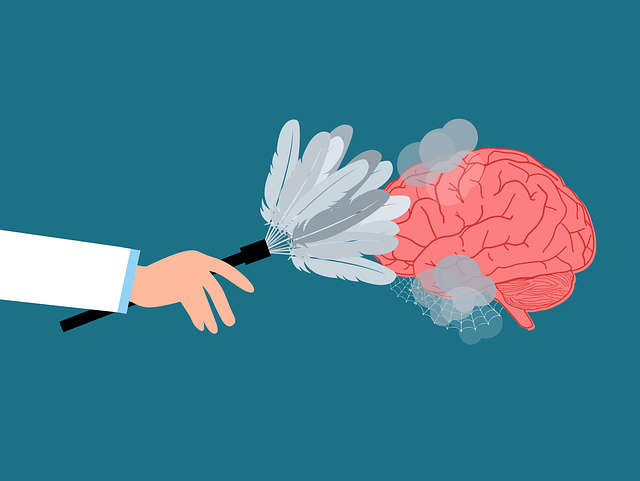Northglenn Alcohol Abuse Therapy offers a comprehensive approach to tackling substance abuse, focusing on holistic treatment methods including cognitive-behavioral therapy (CBT), dialectical behavior therapy (DBT) and mindfulness practices. By addressing the root causes of addiction, fostering self-compassion and building resilience, their evidence-based programs empower individuals to overcome dependencies and maintain long-term recovery. Supportive group therapy sessions, family involvement, and public awareness campaigns further strengthen this strategy, aiming to create a stigma-free environment where everyone has access to quality care and the resources needed for successful sobriety.
In the pursuit of a healthier, safer community, understanding and mitigating substance abuse risks is paramount. This comprehensive guide explores effective strategies for risk reduction, focusing on both prevention and recovery. From recognizing the signs of substance abuse in Northglenn to fostering supportive environments and employing evidence-based therapies like those offered at Northglenn Alcohol Abuse Therapy, each section provides valuable insights. Additionally, we delve into building resiliency to foster long-term wellness.
- Understanding Substance Abuse and Its Risks
- Creating a Supportive Environment for Recovery
- Evidence-Based Therapies and Interventions
- Building Resiliency and Long-Term Strategies for Prevention
Understanding Substance Abuse and Its Risks

Substance abuse, a complex issue affecting individuals across all demographics, involves the excessive and harmful use of drugs or alcohol. It can lead to severe physical and mental health problems, impacting personal relationships, employment, and overall quality of life. Recognizing the signs and understanding the risks associated with substance abuse are crucial steps towards prevention and recovery. In Northglenn Alcohol Abuse Therapy, professionals focus on addressing these issues holistically, targeting not just the addiction but also the underlying causes.
Compassion cultivation practices, stress reduction methods, and resilience building techniques play a significant role in treatment. By learning to manage stress, develop coping mechanisms, and foster compassion towards oneself and others, individuals can reduce their vulnerability to substance abuse. These evidence-based approaches help clients build mental fortitude, enabling them to navigate challenges without resorting to harmful substances as a crutch.
Creating a Supportive Environment for Recovery

Creating a supportive environment is pivotal for anyone navigating substance abuse recovery, especially in communities like Northglenn where specialized services are available. Alcohol abuse therapy centers in Northglenn often emphasize the role of family and peer support in fostering a positive atmosphere conducive to healing. This can involve group therapy sessions where individuals share their experiences, providing comfort and understanding. A supportive environment also encourages open communication about mental health awareness, allowing individuals to discuss challenges without stigma.
Incorporating strategies for inner strength development is another critical aspect. By promoting mood management techniques and mindfulness practices during therapy, individuals gain tools to cope with cravings and triggers effectively. This holistic approach ensures that recovery isn’t just about abstinence but also about building mental resilience and emotional well-being, ultimately enhancing the likelihood of long-term success in overcoming substance abuse.
Evidence-Based Therapies and Interventions

Evidence-based therapies and interventions play a pivotal role in effectively addressing substance abuse issues. These strategies are backed by extensive research and have proven successful in helping individuals overcome addiction and build resilience. Northglenn Alcohol Abuse Therapy, for instance, leverages cognitive-behavioral therapy (CBT), dialectical behavior therapy (DBT), and motivational interviewing to target the root causes of addiction, improve mental health awareness, and foster healthier coping mechanisms.
By integrating evidence-based practices, therapists can create a tailored treatment plan that enhances the likelihood of long-term recovery. This includes not only addressing the physical dependence on substances but also focusing on the psychological and social aspects of addiction. Additionally, building resilience is an integral component of these interventions, equipping individuals with the tools to navigate triggers, manage stress, and maintain sobriety in various environments. Mental Health Policy Analysis and Advocacy also supports such therapies by ensuring access to quality care and promoting public understanding of addiction as a treatable mental health disorder.
Building Resiliency and Long-Term Strategies for Prevention

Building resilience is a key component of long-term strategies to prevent substance abuse. This involves equipping individuals and communities with the tools to cope with stress, adversity, and triggers effectively. Northglenn Alcohol Abuse Therapy often incorporates techniques such as mindfulness meditation and positive thinking to enhance emotional regulation and promote healthier decision-making. Regular practice of these skills can help individuals navigate challenging situations without resorting to substance use as a coping mechanism.
Public Awareness Campaigns Development plays a crucial role in fostering a culture of prevention. By raising awareness about the risks associated with substance abuse, these campaigns empower people to make informed choices and seek support when needed. Integrating education on risk reduction strategies into school curricula and community programs can further strengthen resilience, ensuring that individuals are equipped with knowledge and resources to maintain well-being over time.
Substance abuse is a complex issue, but with the right strategies, recovery and prevention are achievable. By fostering a supportive environment, implementing evidence-based therapies like those offered at Northglenn Alcohol Abuse Therapy, and building resilience, we can significantly reduce risks associated with substance misuse. These comprehensive approaches empower individuals to break free from addiction’s grip and build a healthier future.










